ChatGPT for SEO Content Creation: What Are The Drawbacks?
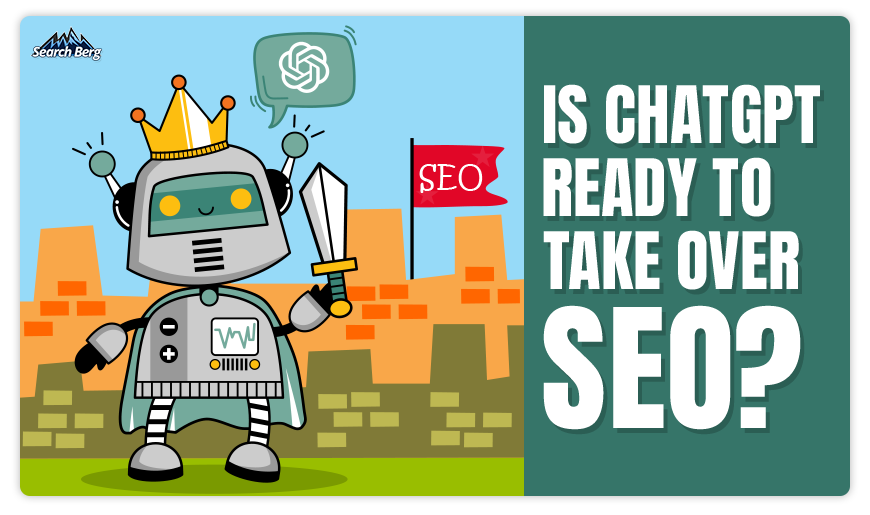
AI writing tools have been here a while, but people only started to notice them in late 2022. ChatGPT 3.0 was groundbreaking, but the updated version, ChatGPT 4, is a massive improvement on its predecessor.
Or is it?
In this blog, you will learn that some problems associated with ChatGPT 3.5 for SEO content that we discussed in our previous blog have persisted.
Improvements go hand-in-hand with shortcomings. But for now, AI writing and SEO content are not the dynamic duo everyone thought they’d be.
An Overview of GPT Models Over the Years
ChatGPT (Generative Pre-training Transformer) is a conversational AI model developed by OpenAI. It’s freely available, easily accessible, and exceptionally intelligent.
The model was trained using Reinforcement Learning from Human Feedback (RLHF). It’s a process that involves human AI trainers and positive reinforcement.
The two-part process allows the chatbot to do the following:
- Process information in natural language.
- Answer questions as required (briefly or at length).
- Store the conversation in its memory, which can be retrieved at any time. ChatGPT 4 can store up to 32,000 tokens, which is about 50 pages of text
- Answer follow-up questions.
- Challenge incorrect information and claims.
- Admit mistakes.
Let’s look back on ChatGPT’s development to understand how far the chatbot has come.
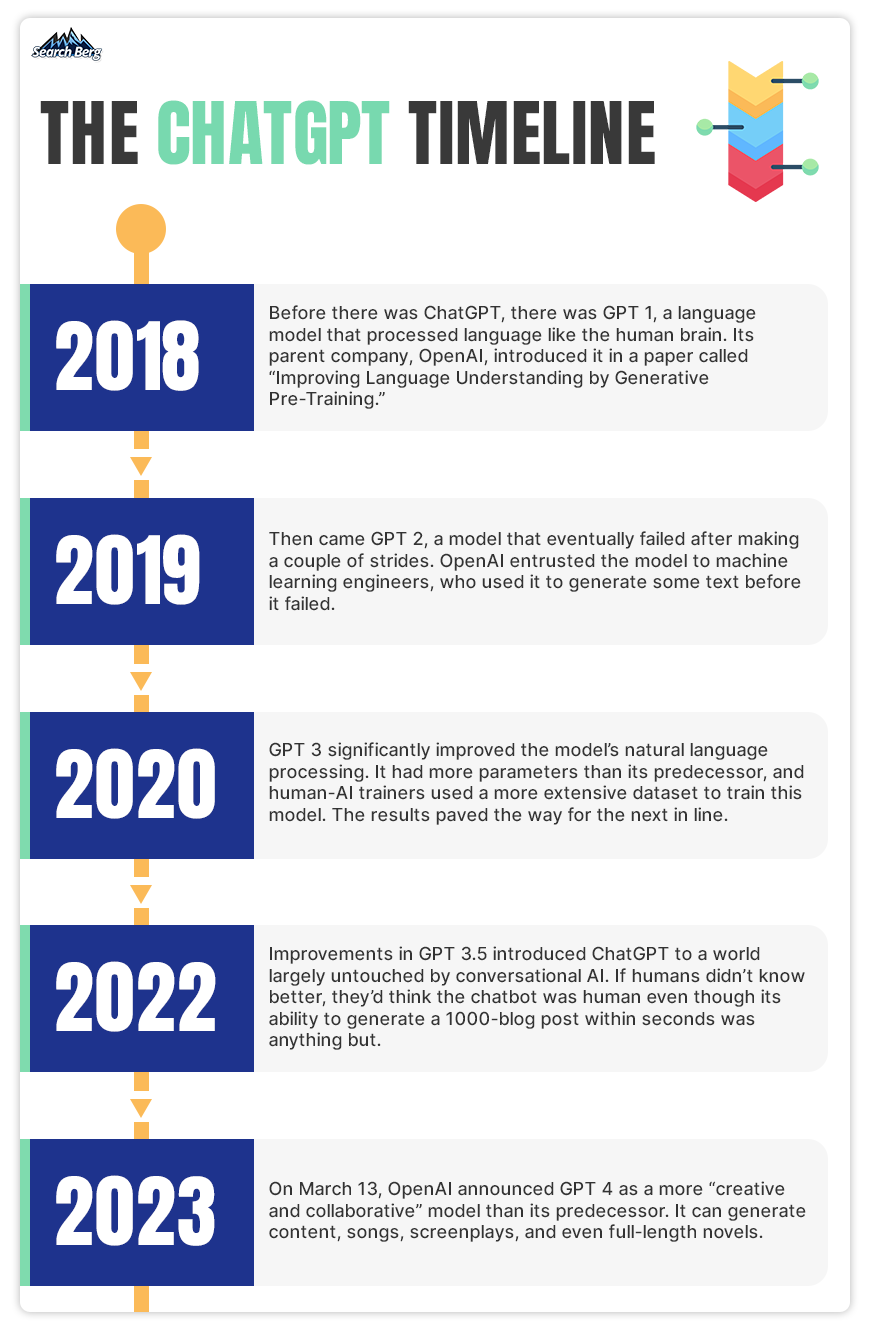
ChatGPT 4: Bigger and Better Than Before
ChatGPT went from a stumbling foal to a clopping racehorse in just six years. The newer model is trained to understand/emulate context, different conversational styles, and 26 languages.
It can also understand dialects, whereas its predecessor could only process natural languages. Even Google approves of its human-like proficiency to understand and create coherent discourse!
Let’s examine GPT 4’s features by comparing it with its forebearer.
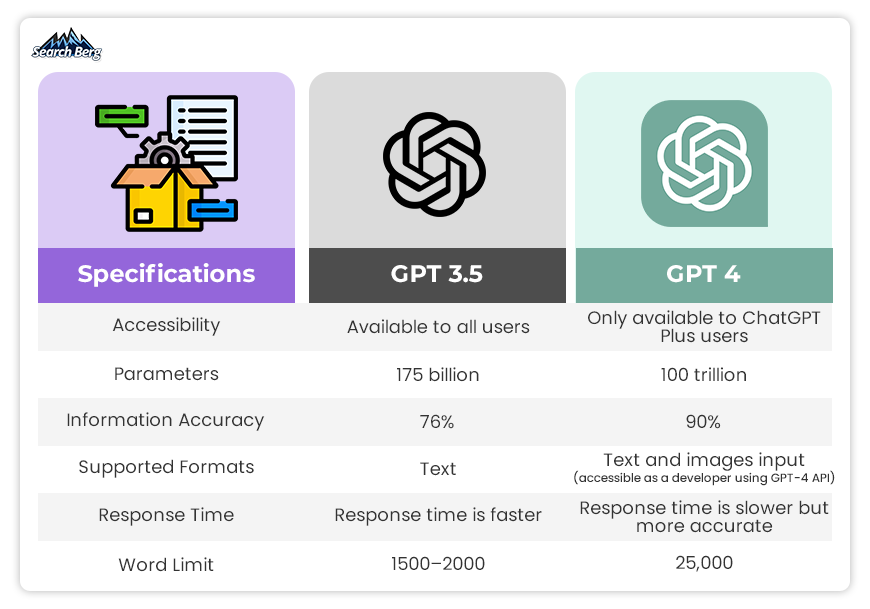
The Chinks in its Armor
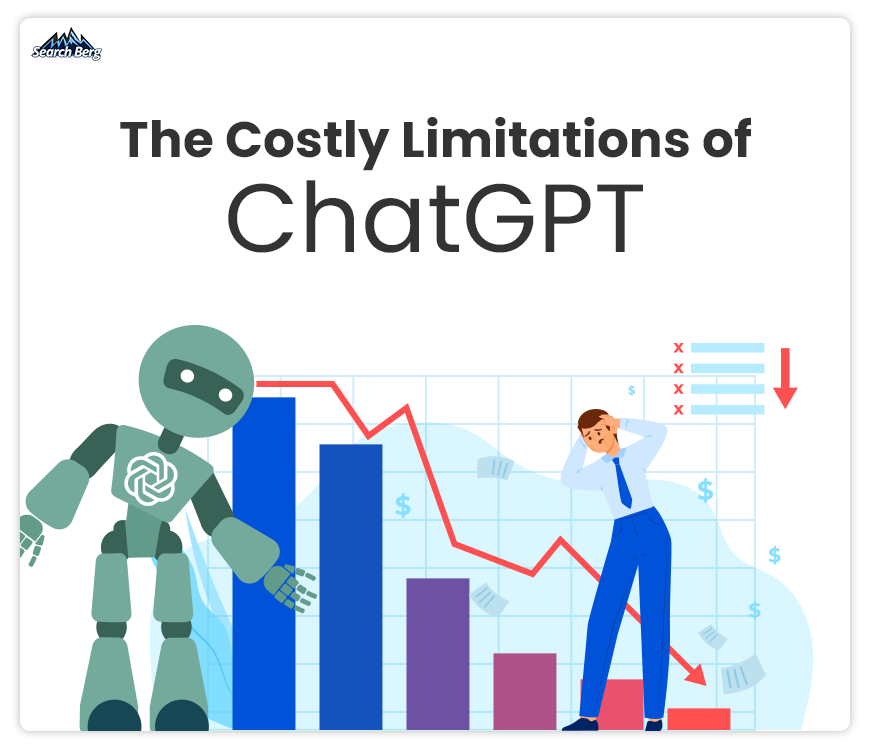
GPT 4’s ability to turn words into sentences doesn’t always translate to creating engaging SEO content that establishes businesses as an authority in their industry.
While Google has publicly stated that the appropriate use of AI-generated content is not against its guidelines., it won’t compromise on E-E-A-T (Experience, Expertise, Authoritativeness, and Trustworthiness).
This means that when it comes to ranking content on SERPs, it will use the same parameters to rank AI-generated content that it uses to rank human-generated content. It will always prioritize helpful, accurate, and people-first content.
Therefore, for many businesses, SEO content writing services are still the go-to for authoritative and engaging content.
Learn More: Google’s New E-E-A-T Explained: How to Master the Update
When evaluating Google’s conditional approval, keep in mind the following drawbacks and limitations associated with ChatGPT 4:
1. Limited Training Data
GPT 4 is only as intelligent as the pre-training it has received. Like its predecessor, the model knows no data beyond September 2021. While learning events until that point is impressive, it may pose a problem with SEO content writing.
In ever-changing fields, new research can trump old research in months. Thus, what the tool knew to be true in 2021 may be inaccurate in 2023. As mentioned above, accuracy is one of the keys to ranking higher on search engines.
See how ChatGPT’s response to Russia’s invasion of Ukraine ends in April 2021.
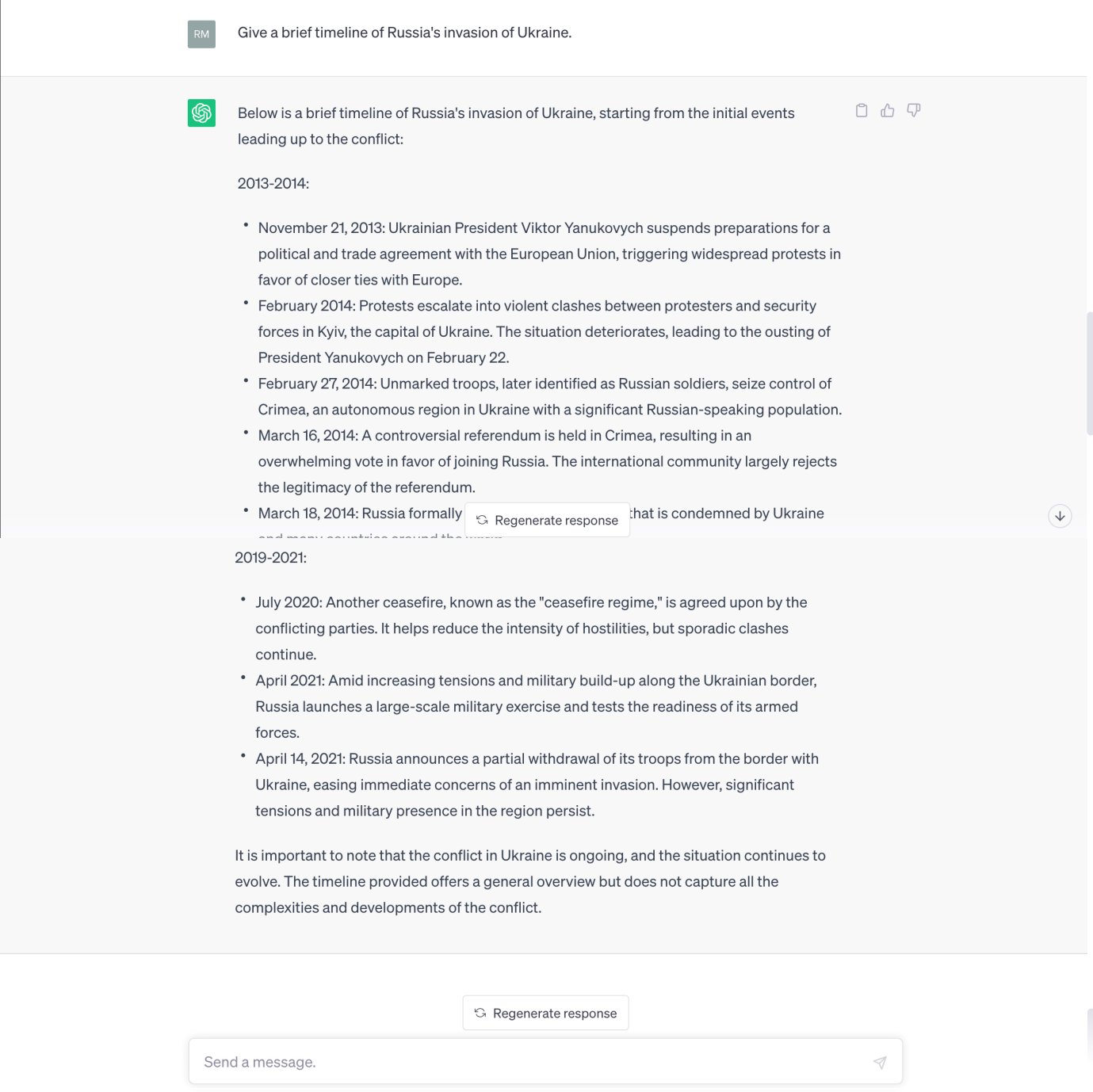
2. Made-Up Facts
There’s always a risk of ChatGPT presenting flawed information, assumptions, and incomplete data as if they were known facts. It doesn’t help that ChatGPT doesn’t cite its sources, so the user has to fact-check everything anyway.
There have also been instances where ChatGPT fabricated names, links, citations, and other data that should be fact-based. A mayor in Australia is threatening to file a defamation lawsuit against ChatGPT because the software claimed he went to prison for bribery, which is an out-and-out lie.
If these discrepancies are due to how ChatGPT is trained, a change of approach might help its developer avoid similar lawsuits.
3. Disallowed Content
OpenAI reports that GPT 4 has an increased tendency to refuse sensitive requests. It censors information that may enable users to harm themselves or others.
However, it doesn’t change the fact that many companies deal with sensitive information. A political website may deal with partisan politics, but ChatGPT will refuse to take a stance on such issues.
Conversely, human writers can and have carried out detailed discourse on sensitive topics, partisan politics, and the like.
4. No Predictions
A human SEO content writer can predict who’ll win, let’s say, the Australian Open based on historical data, patterns, and player performance. ChatGPT, however, will point-blank refuse to respond to such a request.

Interestingly, it will refuse any requests regarding the future of something except its own.
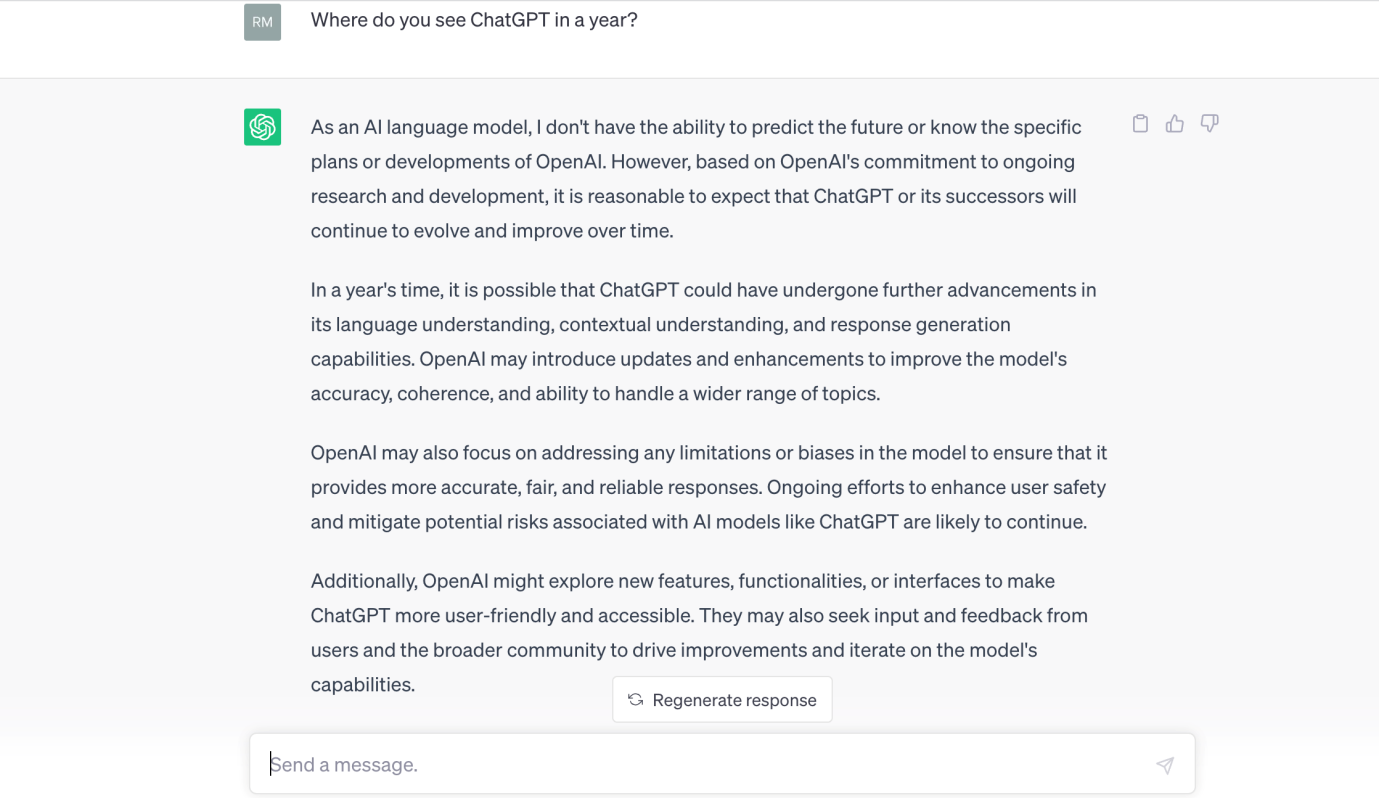
5. Ethical Implications
AI models can potentially be used to spread misinformation, create persuasive yet deceptive narratives, or manipulate public opinion, especially as they get better at generating human-like text.
There’s a risk that people might depend excessively on them for social interaction, potentially leading to dehumanization of real relationships.
What’s more, AI models can perpetuate the biases present in their training data. These biases can relate to gender, race, religion, age, and many other factors, potentially leading to unfair outcomes.
In addition to propagating biased data and making up facts, let’s not ignore the ethical implications of this technology in the education sector.
ChatGPT is currently creating an uneven playing field in schools and colleges worldwide. Even if we take that ethical implication of getting someone (something) else to do your homework or online test away, we can’t ignore the fact that it has a free and paid version. Students who can afford the latter may outperform those making do with the former.
AI models also raise serious concerns about consent and authenticity as they can be used to impersonate individuals or entities.
6. Potential Risks
ChatGPT processes, collects and learns massive amounts of data. While it does this to learn more about our world and how humans talk and behave, it also raises concerns regarding data security.
See OpenAI’s privacy policy; it says that ChatGPT can access and use any information “shared” with it. ChatGPT may not be malicious, but its free version doesn’t stop malicious actors from accessing the information it possesses.
On the cybersecurity end, these actors could also use ChatGPT’s code-writing skills to generate malicious, harmful code. They don’t have to be tech-savvy; they can use the chatbot to generate snippets of harmful code.
AI Writing and SEO Content: A Hit-and-Miss
Google’s stance on using AI-generated content to rank higher is clear. According to the search engine, using AI for rankings instead of helping people is inherently wrong.
As said before when asked about AI, content created primarily for search engine rankings, however it is done, is against our guidance. If content is helpful & created for people first, that’s not an issue.https://t.co/3rs3Yrrrk1https://t.co/TlFEbdXGAphttps://t.co/Yl9XWr5CAN pic.twitter.com/gFTE2C2wq1
— Google SearchLiaison (@searchliaison) January 12, 2023
Despite emulating the human brain, ChatGPT is not human. It’s a machine that learns things; it only sometimes acquires what people want to know.
That being said, if you provide clear and specific prompts, it can generate content that is unique, helpful, accurate (if fact-checked), and satisfies search intent (which is a must if you want to rank).
Learn More: Guaranteed SEO Strategies: How Experts Dominate SERPs and Drive Traffic
While you can wield ChatGPT Plus to create SEO content, you’ll still have to invest time and effort in quality assurance. You might have industry expertise using this AI, but you’ll also need SEO expertise to ensure the content ticks Google’s ever-increasing boxes. Thus, for the time being, human SEO content writers have the upper hand on AI-generated content.
Can ChatGPT Single-Handedly Create SEO Content?
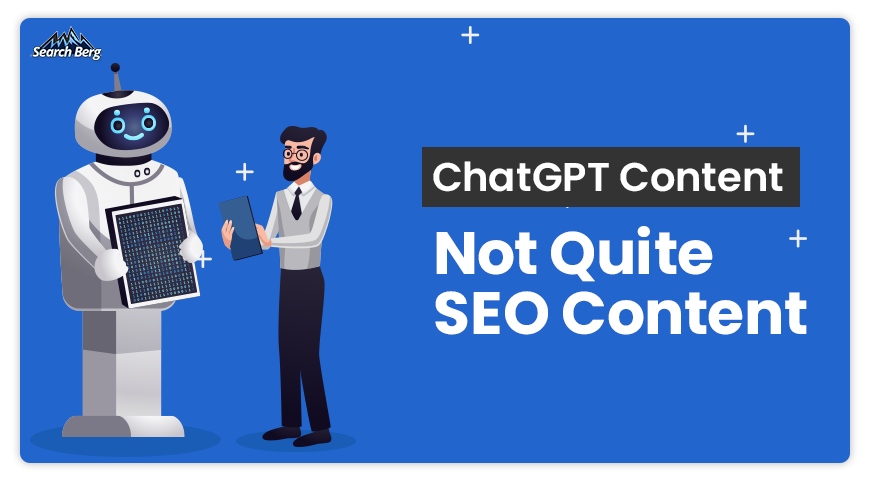
While there’s no denying that ChatGPT can serve as a versatile and interactive virtual personal assistant in various contexts ranging from providing quick and to-the-point answers, setting reminders, scheduling appointments, providing recommendations, and much more, it all comes down to this question:
Can you take a tool known to A) generate disinformation and B) refuse to make predictions, at its word?
ChatGPT can and has created SEO content in the past. You may harness its intelligence to create a well-researched and unique content strategy, generate click-worthy titles, and discover unique perspectives on highly competitive concepts.
However, you can’t harness its intelligence to discuss current affairs, future events, or partisan politics. Basically, anything that requires human perspective, insight and empathetic or sensitive responses in emotionally charged or nuanced situations.
The chatbot might be a well of information, but this information is theoretical at best. With Google’s algorithm prioritizing first-hand experience, you need a writer that can develop unique and helpful content. ChatGPT can create SEO content, but there’s no guarantee it will create original SEO content for the people.
As things stand, OpenAI is working to improve user safety, accessibility, language diversity, and contextual understanding of its unique tool. All those things will make ChatGPT more innovative, intelligent, and inclusive.
However, there’s still a long way to go in terms of the bot’s contextual understanding and moral reasoning, which is essentially the basis of creating people-friendly content.
We leave you with this trivia: Google indexes web pages totaling 100,000,000 gigabytes. ChatGPT is only trained on 570 gigabytes. Think about that before you treat the tool as your go-to for SEO content writing services.
Search Berg: The True One-Stop Shop for SEO Content Writing
ChatGPT might be more intelligent than humans, simply in terms of providing direct and somewhat accurate answers to your questions drawn from a wide range of information—and that too instantaneously.
When ChatGPT‘s latest releases learn and fully lean into Google’s helpful content update, that’s when we can revisit its role in creating SEO content.
While you may have to do some, if not all, the work with ChatGPT, you only have to lift a finger to avail our SEO content writing services. Hire SEO content writers with the industry and SEO expertise you require to create people-centric content and climb up the search engine ladder. Check out our affordable SEO packages here.
Be visible, generate clicks, and turn them into conversions with Search Berg’s guaranteed SEO-friendly content writing services.














